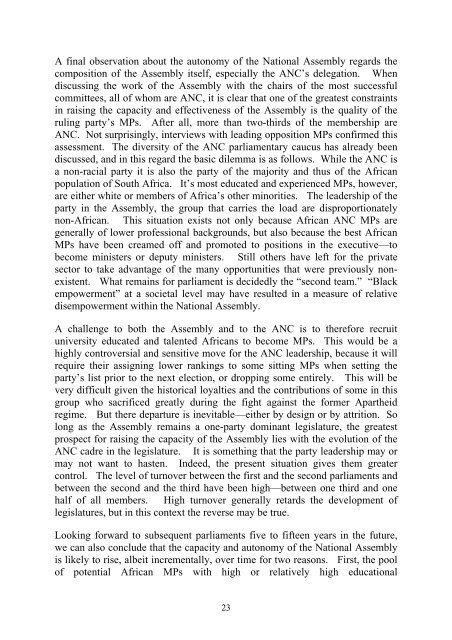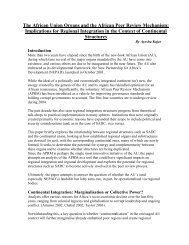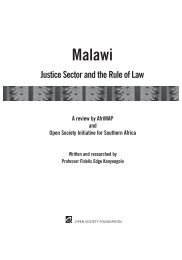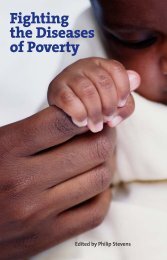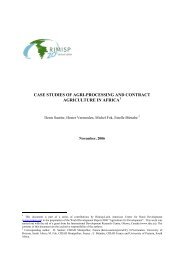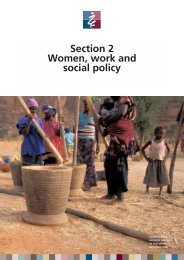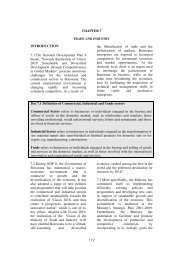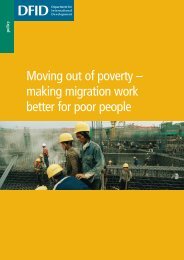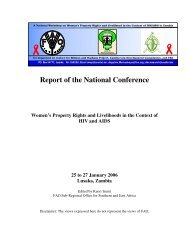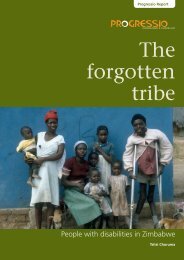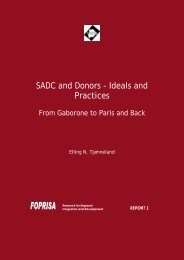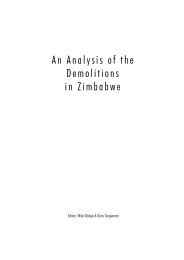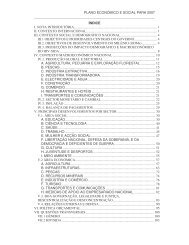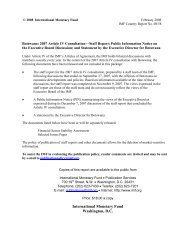400Kb ~ 2 min (33 pages) - SARPN
400Kb ~ 2 min (33 pages) - SARPN
400Kb ~ 2 min (33 pages) - SARPN
You also want an ePaper? Increase the reach of your titles
YUMPU automatically turns print PDFs into web optimized ePapers that Google loves.
A final observation about the autonomy of the National Assembly regards thecomposition of the Assembly itself, especially the ANC’s delegation. Whendiscussing the work of the Assembly with the chairs of the most successfulcommittees, all of whom are ANC, it is clear that one of the greatest constraintsin raising the capacity and effectiveness of the Assembly is the quality of theruling party’s MPs. After all, more than two-thirds of the membership areANC. Not surprisingly, interviews with leading opposition MPs confirmed thisassessment. The diversity of the ANC parliamentary caucus has already beendiscussed, and in this regard the basic dilemma is as follows. While the ANC isa non-racial party it is also the party of the majority and thus of the Africanpopulation of South Africa. It’s most educated and experienced MPs, however,are either white or members of Africa’s other <strong>min</strong>orities. The leadership of theparty in the Assembly, the group that carries the load are disproportionatelynon-African. This situation exists not only because African ANC MPs aregenerally of lower professional backgrounds, but also because the best AfricanMPs have been creamed off and promoted to positions in the executive—tobecome <strong>min</strong>isters or deputy <strong>min</strong>isters. Still others have left for the privatesector to take advantage of the many opportunities that were previously nonexistent.What remains for parliament is decidedly the “second team.” “Blackempowerment” at a societal level may have resulted in a measure of relativedisempowerment within the National Assembly.A challenge to both the Assembly and to the ANC is to therefore recruituniversity educated and talented Africans to become MPs. This would be ahighly controversial and sensitive move for the ANC leadership, because it willrequire their assigning lower rankings to some sitting MPs when setting theparty’s list prior to the next election, or dropping some entirely. This will bevery difficult given the historical loyalties and the contributions of some in thisgroup who sacrificed greatly during the fight against the former Apartheidregime. But there departure is inevitable—either by design or by attrition. Solong as the Assembly remains a one-party do<strong>min</strong>ant legislature, the greatestprospect for raising the capacity of the Assembly lies with the evolution of theANC cadre in the legislature. It is something that the party leadership may ormay not want to hasten. Indeed, the present situation gives them greatercontrol. The level of turnover between the first and the second parliaments andbetween the second and the third have been high—between one third and onehalf of all members. High turnover generally retards the development oflegislatures, but in this context the reverse may be true.Looking forward to subsequent parliaments five to fifteen years in the future,we can also conclude that the capacity and autonomy of the National Assemblyis likely to rise, albeit incrementally, over time for two reasons. First, the poolof potential African MPs with high or relatively high educational23


